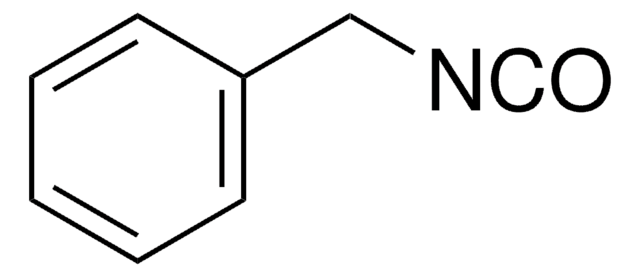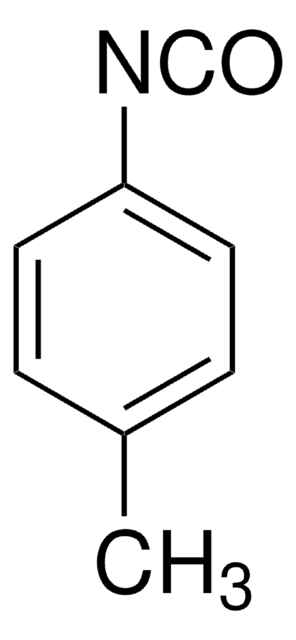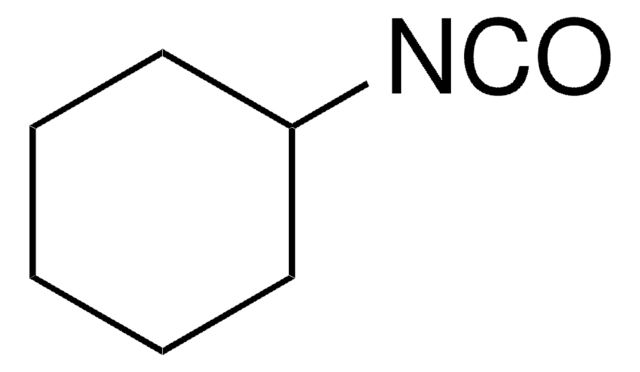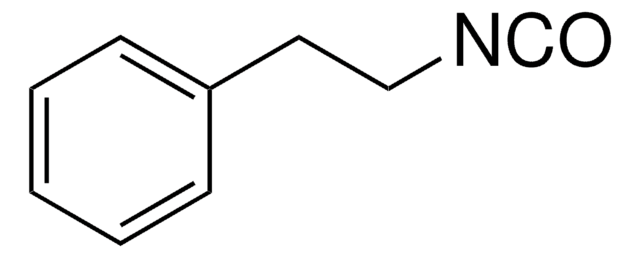185353
Phenyl isocyanate
≥98%
Synonym(s):
Isocyanatobenzene, PhNCO
About This Item
Recommended Products
vapor pressure
1.4 mmHg ( 20 °C)
Quality Level
Assay
≥98%
form
liquid
refractive index
n20/D 1.535 (lit.)
bp
162-163 °C (lit.)
mp
−30 °C (lit.)
density
1.096 g/mL at 25 °C (lit.)
functional group
isocyanate
storage temp.
2-8°C
SMILES string
O=C=Nc1ccccc1
InChI
1S/C7H5NO/c9-6-8-7-4-2-1-3-5-7/h1-5H
InChI key
DGTNSSLYPYDJGL-UHFFFAOYSA-N
Looking for similar products? Visit Product Comparison Guide
General description
Application
Signal Word
Danger
Hazard Statements
Precautionary Statements
Hazard Classifications
Acute Tox. 1 Inhalation - Acute Tox. 4 Oral - Aquatic Acute 1 - Aquatic Chronic 1 - Eye Dam. 1 - Flam. Liq. 3 - Resp. Sens. 1 - Skin Corr. 1C - Skin Sens. 1A - STOT SE 3
Target Organs
Respiratory system
Storage Class Code
3 - Flammable liquids
WGK
WGK 2
Flash Point(F)
123.8 °F - closed cup
Flash Point(C)
51 °C - closed cup
Personal Protective Equipment
Choose from one of the most recent versions:
Already Own This Product?
Find documentation for the products that you have recently purchased in the Document Library.
Customers Also Viewed
Our team of scientists has experience in all areas of research including Life Science, Material Science, Chemical Synthesis, Chromatography, Analytical and many others.
Contact Technical Service

















